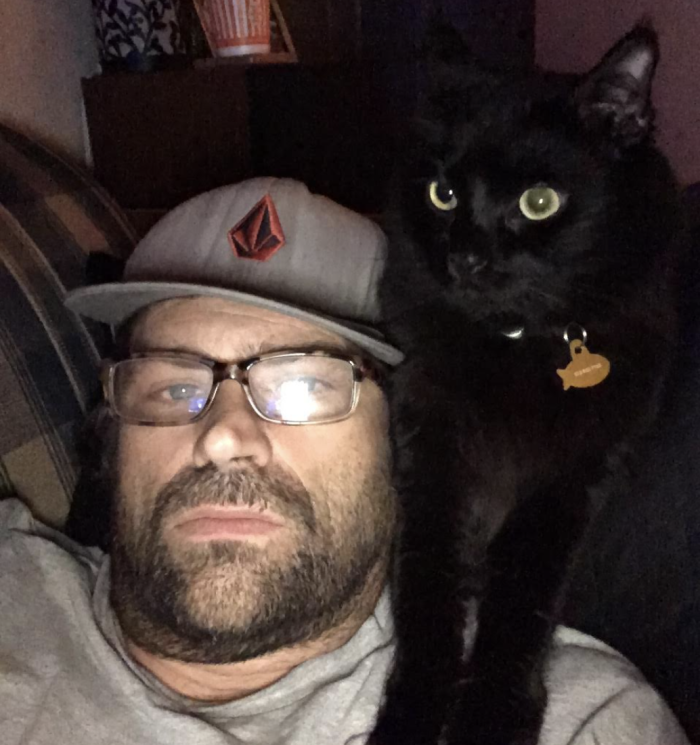{*Did you know you can write on Elephant? Here’s how—big changes: How to Write & Make Money or at least Be of Benefit on Elephant. ~ Waylon}
~
Crafting New Traditions for Diverse End-of-Life Celebrations
My best friend Erica’s husband passed from a brain aneurysm.
For his memorial, we met at the Wildflower Center to scatter his ashes next to a Texas Mountain Laurel planted in his honor. On the car ride there, I smoked a little weed and practiced my eulogy, “Jon was a good-looking, intelligent guy. He had leading-man charisma and lived in Hollywood, even though he hated L.A.”
As we struggled to open the container of ashes, I thought about how nobody tells you how to do this stuff. I grew up knowing about funerals, I attended my grandparents’, but a priest always took the lead. We followed.
Hoping to not recreate a scene out of “The Big Lebowski,” I suggested that she stand upwind of the container. However, nothing was coming out of the little ash-hole. We finally ended up taking the whole lid off.
It’s not a fine powder, either. Nobody tells you that. There are chunks of bone. It feels so real, so granular—and this was his body. Erica sprinkled a few ashes out, looking unsure, and asked if anyone else would like a turn. Then we all self-regulated how much ash, where the ash went, and how long to sprinkle before passing it to the next person.
When we finished, there was silence. One woman seemed uncomfortable with the moment and suggested we sing a song. I glanced at Erica. We’re not singers. Was anyone else? Other guests looked at each other nervously, and then I said out loud, “I don’t know any songs.” Everyone else demurred or looked down. I only know lyrics to a few nursery rhymes, “Fifty, Nifty United States,” and “Ice, Ice Baby.”
She said, “What about ‘Amazing Grace’?” It’s a gorgeous song worthy of a funeral, however, no one knew the words. A couple of people started in awkwardly. Erica suggested, “Maybe we can just hum it?” Some others joined in hesitantly.
Then it started. It struck me as hilarious. All the tension was coming to a head, and I tried so hard to push down what I felt because it was entirely inappropriate.
The harder I tried, the stronger the urge became. You know how it goes. Then it came out, loud and strong, sounding like a huge sob: I laughed. I took a breath and tried to regain my composure, but it’s like taking a giant piss: once you start, there’s no stopping it.
Nearly everyone thought I was crying hysterically. But I knew that my friends knew I wasn’t. Close friends just know. Afterward it was confirmed—everyone else thought I was having a breakdown. And in a sense, I was.
We all shared a good laugh at the post-memorial lunch. “Jon would have approved” was the consensus.
We took turns telling stories about him. I recalled a time when he imitated my new kitten. He was a tall man, over six feet, and he jumped up on the back of my sofa, on hands and knees like a cat, a crazed look in his eye, bouncing around like a kitty with the zoomies.
And the time he and Erica picked me up from the airport. I sat in the backseat thinking it strange how Jon didn’t help me with my bags, not that I needed the help, but he was chivalrous. About five minutes into the drive, I found out it was because he was completely nude—just because he thought it would be funny.
It was.
I grew up Catholic, but came to different conclusions in college, as one does. I like to believe that we have a soul that goes on after our flesh sack dies. But believing that ordained priests are the only people who get to speak to God? Or that said priests sprinkling their special water on my head determines the situation of my afterlife? Not so much.
Nearly 30 percent of Americans consider themselves “religiously unaffiliated,” or “unchurched,” as my pastor friend Linda McWhorter calls it.
When these unavoidable rites of passage, like death, come along, how do we cope? How do we process the ceremony, or as we discovered, even the mechanisms of doing the ceremony?
Linda says, “The trend now is to call it more of a celebration of life, or a memorial, rather than a funeral.” Hiring an officiant to perform the ceremony, giving a sense of order, is a popular option. “People rarely have them in church anymore, unless they’re religious. Most people like to do it at home or at a park.”
She recommends her clients include something like scattering the ashes in a lake and dropping in rose petals. The ashes sink right to the bottom (good to know!) while you watch the rose petals float away. “It’s very emotional.”
Playing your loved one’s favorite song on your phone, sharing your favorite memory of them, or reciting a poem are beautiful as well. We actually ended up reciting one of Jon’s favorite poems, “Do Not Go Gently into This Good Night.”
A few months later, I listened to the lyrics of Hozier’s “Take Me to Church.” He sings about the kind of girl who giggles at a funeral. Good to know I’m not the first person to do it.
One Sunday morning, I was early for yoga, so I walked around the block waiting for the studio to open. A golf cart drove across my path with a cheerful guy driving. “Good morning, Sister! Need a lift?” I did not, but the interaction put a smile on my face. Their church was so popular, people had to park blocks away. He and several other volunteers were shuttling them to service.
They had their beliefs, and I was about to attend to mine, in the form of a yoga class.
For me, clearing my mind, breathing, and connecting to my body is my “religion.” For others, it’s their belief in Jesus, Buddha, or some form and name of God. Either way, we all get to memorialize the life and passing of those we loved. And if we’re lucky, they’ll do the same for us some day.
~
{Please consider Boosting our authors’ articles in their first week to help them win Elephant’s Ecosystem so they can get paid and write more.}
~












Read 2 comments and reply